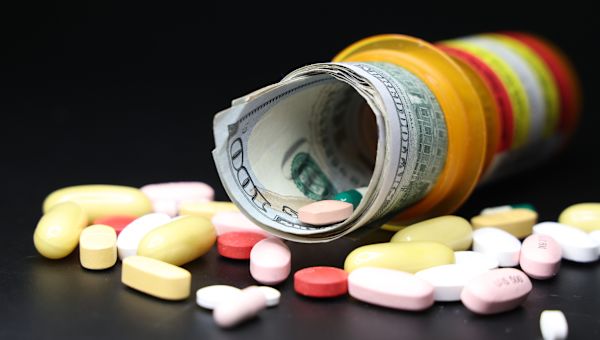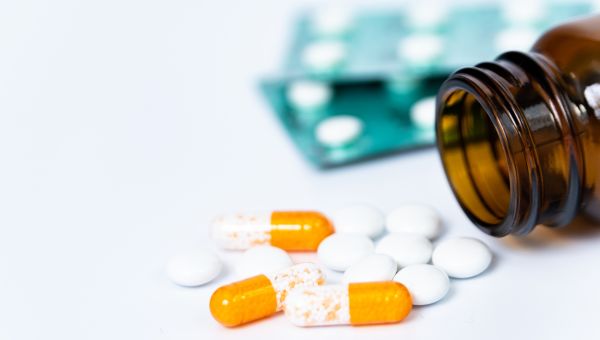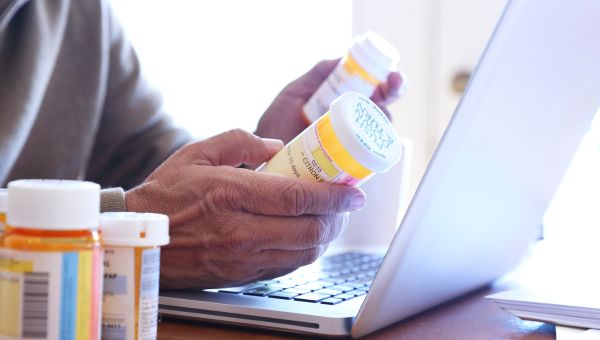7 ways to save money on your meds
Use these savvy strategies to cut your prescription drug costs.
Updated on March 31, 2025

About 8.2 percent American adults don’t take their medications as prescribed so they can save money, according to data from the Centers for Disease Control and Prevention (CDC). But not following your prescriptions or skipping your medications altogether could be dangerous, leading to health issues that cost much more than these drugs. Fortunately, there are ways to make your medications more affordable. Start with these money-saving strategies.

Compare prices
Drug prices differ according to zip code and among pharmacies. Before filling your prescription, call different locations for estimates. Remember that discount stores like Walmart and Target often run specials and may have member discounts. Also, don’t overlook small, independent pharmacies. They can be cheaper than national chains and may be willing to negotiate prices. If your insurance has the option, you may want to look into a mail-order pharmacy, too.
Explore prescription discount cards, as well, which offer lower prices on certain medications at participating pharmacies. Many are free and widely available, though in some cases they may not be useable with insurance. Make sure to compare costs, fees, cancellation policies, and reputations before signing up.

Talk to your pharmacist
Insurance contracts cannot prevent your pharmacist from volunteering discount information, but they are not required to do so unless you ask. Before you pay, find out if you’re getting the best deal. Ask about the difference between supply counts, too—one 90-day supply may be cheaper than three separate 30-day supplies.

Review meds with your doctor
Ask your healthcare provider (HCP) to review your medication list regularly to see if any drugs may be phased out. This can help prevent errors and interactions in addition to cutting costs. It’s also an opportunity to make plans for getting you off some medications once you make certain lifestyle changes. Ask about cheaper brand or generic options, as well, and encourage your HCP to choose from your insurer’s formulary, the list of medications that your plan covers.

Try generics
Generic drugs are made with the same active ingredients as name brands. They undergo rigorous testing by the United States Food & Drug Administration (FDA) before becoming available to patients. If you haven’t tried them because you’re worried about “getting what you pay for,” know that generics aren’t cheaper because of quality. Name brands cost more because they’re the first version of the drug and the company had to pay for the expensive, early safety studies.
Check generic prices at chain stores. They tend to offer impressive deals when you pay out-of-pocket. If you’re a member, warehouse club stores often fill some generic prescriptions for a steep discount—or even for free.

Work with your insurer
If the price of a drug you take changes, it may have been moved to a higher tier on your insurer’s formulary. That means it’s still covered by your plan, but you’ll have to pay more for it. Look for similar drugs on lower tiers with your HCP. If there are no other options, your HCP can petition the insurance company for a lower price on your behalf.

Check out financial assistance
Some drug companies offer financial assistance programs. If you prove that you need a medication, but can’t pay for it, they may be willing to help. Non-profit organizations like NeedyMeds can provide assistance, as well.

Beware ordering meds online
Don’t buy medications from other countries; they are likely low quality or fake. When buying drugs online, the FDA recommends only using a U.S.-based company to ensure that it’s a reliable source. There are also plenty of Internet scams, so look for the “VIPPS” logo, which shows that it’s a Verified Internet Pharmacy Practice Site.

Mykyta L, Cohen RA. Characteristics of adults aged 18–64 who did not take medication as prescribed to reduce costs: United States, 2021. NCHS Data Brief, no 470. Hyattsville, MD: National Center for Health Statistics. 2023.
American Cancer Society. Help Paying for Prescription Drugs. Last revised May 13, 2019.
Pan Foundation. Tips for saving money on prescription medications. Accessed March 31, 2025.
New York State Attorney General. Discount health & prescription cards. Accessed March 31, 2025.
Medicare.gov. Help with drug costs. Accessed March 31, 2025.
National Alliance on Mental Illness. Getting Help Paying for Medications. Accessed March 31, 2025.
U.S. Food & Drug Administration. Quick Tips for Buying Medicines Over the Internet. Current as of February 25, 2020.
The Center for Safe Internet Pharmacies. Counterfeit Medication. Accessed October 20, 2022.
More On


video

article

slideshow


video


video
